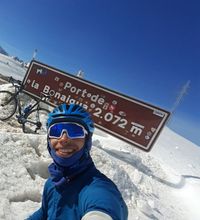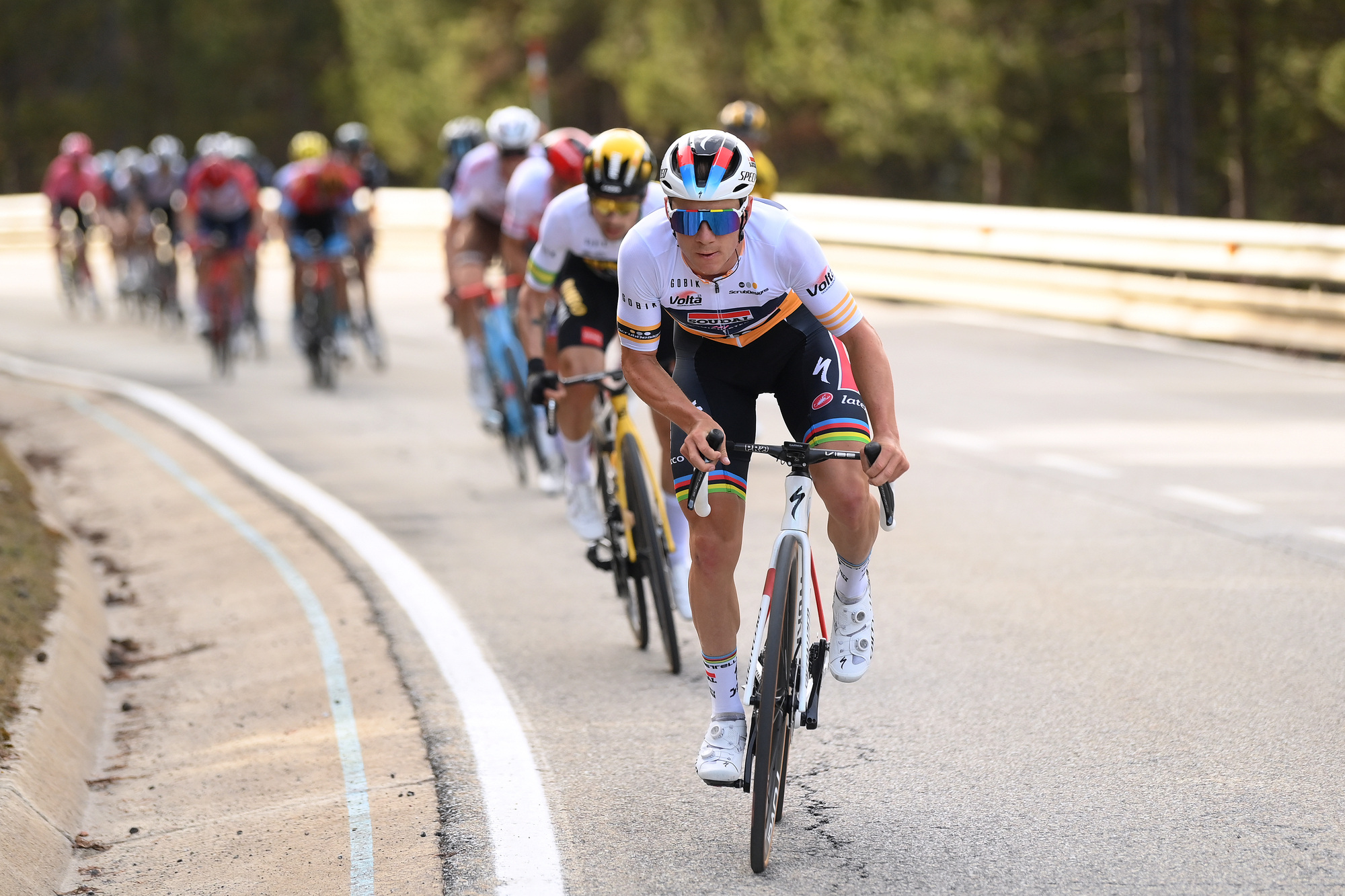No turns, giving up and learning from mistakes: dissecting a curious stage three of the Volta a Catalunya
Why did the chase group give up? What was Primož Roglič playing at?


The latest race content, interviews, features, reviews and expert buying guides, direct to your inbox!
You are now subscribed
Your newsletter sign-up was successful
There were multiple points in the final 4,600 metres of stage three of the Volta a Catalunya when it looked like Remco Evenepoel was about to explode with fury.
His Soudal-QuickStep team had pulled for the previous 90km, brought back the break in time for the final ascent of La Molina, and then he had ignited the drama with a powerful attack that only stage one victor Primož Roglič - surprise, surprise - could follow.
The duo immediately had a gap. What was left of the peloton behind spread out across the road, giving the two key protagonists the foundation to build an unassailable lead.
But Roglič refused to work. Every time Evenepoel looked back at the Slovenian, the Jumbo-Visma rider remained mute, poker face on. He was not riding. That was Evenepoel’s job. It's just bike racing tactics.
“I was hoping that Roglič was going to work a bit more with me towards this last kilometre,” Evenepoel admitted afterwards, a sign of his frustration. But Roglič remained obdurately stuck to Evenepoel’s wheel. The Belgian could tire himself out; it was he, after all, who was behind in the GC standings.
Meanwhile, the chase group - if it can even be called that - backed off even more. “Nobody could follow - that’s why nobody pulled,” was the assessment of UAE-Team Emirates’ João Almeida. There was an unspoken truce that Evenepoel and Roglič would contest the stage honours. “Everyone was just playing for third place,” Almeida continued.
Giulio Ciccone, winner of stage two 24 hours earlier and tied in second-place with Evenepoel, was panting hard. “The tempo was already fast for the five minutes before they attacked,” he revealed. “So, ah, you know, everyone was on the limit. We just tried to continue with our tempo.”
The latest race content, interviews, features, reviews and expert buying guides, direct to your inbox!
But as the finish line at the ski station approached, the gap between the front pairing had descended from almost 30 seconds to 15 seconds. And then to 10, and down even more to six seconds. Roglič's unwillingness to help was backfiring.
Evenepoel, the world champion, was becoming incensed. “I said, ‘come on, let’s go, we have a gap’,” the Belgian said. But Roglič was having none of it. His behaviour had a second consequence, this one psychological: it was getting inside the mind of Evenepoel, 10 years his junior.
“I was a bit scared that he was playing mind games, that he was maybe going to counter me once we were coming up to the false flat [and] run-in towards the sprint,” Evenepoel admitted. It was also what everyone watching was thinking.
As the string became looser, as Ciccone and co. sighted the backs of Evenepoel and Roglič, the 500 metre marker arrived. It was Roglič’s time to make his move that would have caused blood to course through Evenepoel’s veins.
Yet, it didn’t happen. “I didn’t really have the legs at the end,” Roglič sighed. “If yesterday the climb was a bit too short, today was a bit too long.”
As the final bend appeared, Evenepoel reminded himself of the morning bus chatter. Frustration at not winning the sprints on the opening two stages accompanied his thoughts, too.
“After my two mistakes in the sprint on Monday and yesterday, I was so eager to win this sprint if it came to it,” he said. “What I did in the sprint was the plan, it was what [sports directors] Klaas [Lodewyck] and Geert [Van Bondt] told me this morning: the guy that turns first into the corner and puts in another acceleration wins the stage. And that was the case.”
Evenepoel, having pulled Roglič along for almost five kilometres, repaid his team’s tireless work all day, and inflicted his first psychological blow on Roglič, his soon-to-be Giro d’Italia rival.
“Looking back at the sprint, that was the proof I was maybe a bit stronger than him,” he pointedly said. “Remco was super strong today,” Roglič agreed.
The other GC riders rolled in 13 seconds adrift, not out of the picture mathematically, but already accepting their place in the pack. “They were on another level,” Ciccone said of the top-two. Third place is the new mark of a champion when those two are in town. “We can be happy with our third place,” the Italian added.
Evenepoel would only have accepted first. “If you didn’t win today, I think you’d have been pretty angry, no?” Evenepoel was asked. A smile appeared. “Probably. Yes.”
A freelance sports journalist and podcaster, you'll mostly find Chris's byline attached to news scoops, profile interviews and long reads across a variety of different publications. He has been writing regularly for Cycling Weekly since 2013. In 2024 he released a seven-part podcast documentary, Ghost in the Machine, about motor doping in cycling.
Previously a ski, hiking and cycling guide in the Canadian Rockies and Spanish Pyrenees, he almost certainly holds the record for the most number of interviews conducted from snowy mountains. He lives in Valencia, Spain.
